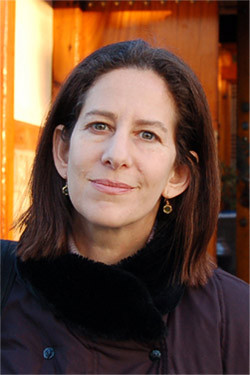SUMMARY
This is AI generated summarization, which may have errors. For context, always refer to the full article.

MANILA, Philippines – No lie: I’m a little scared of North Korea. The lack of information that we have about this country makes me morbidly curious about it.
These sentiments might be shared by many, especially for most of us who have never set foot in North Korea. Apart from some clever memes about its leader (for example, http://kimjongunlookingatthings.tumblr.com) and some publicity photos from the region — strictly monitored, by the way — there isn’t a lot of information about it as a country.
This is especially true for the citizens of North Korea, who have been forced to live in the shadow of their dictator.
Enter Barbara Demick’s “Nothing to Envy: Real Lives in North Korea.” In 300+ pages, Demick provides painstakingly detailed insight into the lives of North Korean refugees. Her book takes us through the lives of 6 North Korean citizens. In her clear, crisp writing, she is able to provide us the political backdrop of their lives, as well as the small but telling details of their daily existence.
Extraordinary research skills
 The amount of research that Demick has done is astounding. The book is mainly based on 7 years’ (7 YEARS!) worth of conversations with North Koreans whom Demick interviewed personally. She also uses a lot of research from scholars and photographs from people who have visited the region, even those that were taken illicitly.
The amount of research that Demick has done is astounding. The book is mainly based on 7 years’ (7 YEARS!) worth of conversations with North Koreans whom Demick interviewed personally. She also uses a lot of research from scholars and photographs from people who have visited the region, even those that were taken illicitly.
Take, for example, the adorable love story between two refugees, Mi-ran and Jun-sang, that was facilitated by the nightly blackouts in North Korea. Because there were no streetlamps, the darkness of the area helped young lovers take long walks together. Of course, walking and holding hands were the steamiest among the activities that they did, and that took 3 years. A kiss? Six.
Also notable is her chapter on the people’s reaction to the death of Kim Il-sung, “Twilight of the God.” The chapter flows like a montage, taking us through each of the refugees and their reactions — grief, shock, helplessness, self-pity, and, surprisingly for some, indifference.
Then there are the scenes from the mourning rites — old women crying, “Abogi, Abogi,” or the Korean honorific for God, and the schoolchildren pretending to cry for fear of getting in trouble — that demonstrate how even the deepest of human emotions is regulated.
Here, Demick provides insight into the relationship between the North Koreans and their Grand Marshal, and helps readers understand the psychological hold that the state has over its citizens. At the same time, she also shows that the Leader is not univocally adored. Some citizens prostrated themselves in front of the statues frequently, not because of genuine grief, but because of the rice cakes provided after each visit.
There are people in that peninsula, too
Listen to Barbara Demick speak at the Oslo Freedom Forum here:
In the midst of all the hype about North Korea, it seems like we’re forgetting that there are people in there. The country is in a dismal political and economic state, but it doesn’t mean that their lives are all the same. They fall in love, they try to have careers, and they even resist the government sometimes.
While they’re very different from us who can read, watch, and eat whatever the hell we want, the North Koreans are still human.
Demick’s book will be of interest to readers who are interested in the most isolated and protected dictatorship in the world. In the 21st century, when it seems like all knowledge is available online and on TV, it’s fascinating to look at a nation that has insisted on excluding itself from this process.
So before you freak out about those missiles, or before you repost another Kim Jung-Un meme, you may want to read “Nothing to Envy,” and remember that somewhere in the impending political and military clusterf*ck are people who may be just like you. – Rappler.com
Florianne L. Jimenez teaches Literature and College Writing at the University of the Philippines Diliman. She is a Palanca award-winning non-fiction writer, with a creative interest in the self, places, and consciousness. She has a massive to-be-read pile dating back to 2008, which includes such titles as ‘The Collected Stories of Gabriel Garcia Marquez,’ ‘Book 5 of Y: The Last Man,’ and ‘The Collected Works of TS Spivet: A Novel.’
Add a comment
How does this make you feel?
There are no comments yet. Add your comment to start the conversation.